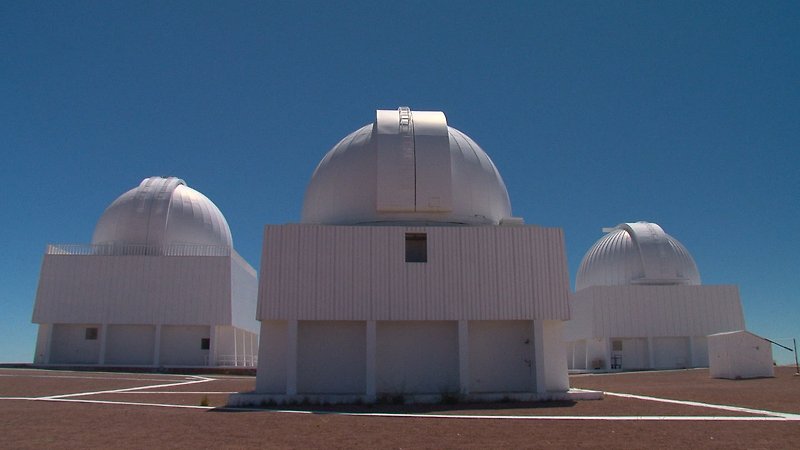Astronomy, archaeology and history are mesmerisingly interwoven and juxtaposed in this visually breathtaking meditation on Chile’s far distant and more recent past by the remarkable documentarian Patricio Guzmán.

Electrifying and unexpected... What comes out of this unlikely comparison between astronomy and history is a totally new perspective.
Screened as part of NZIFF 2010
Nostalgia for the Light 2010
Nostalgia de la luz
Astronomy, archaeology and history are mesmerisingly interwoven and juxtaposed in this visually breathtaking meditation on his country’s far distant and more recent past by the remarkable Chilean non-fiction filmmaker Patricio Guzmán (The Battle of Chile). At 3000 metres altitude, the Atacama desert, with its zero humidity and extraordinarily clear skies, is a perfect place to observe the stars. It is from this vantage point that Guzmán, fascinated by astronomy since childhood, gazes out at the universe and, down, close up, beneath the desert’s sands. Both reveal the past. The glittering heavens, so many light-years away, relay information about matter already dead; the mummified remains of Pre-Columbian civilisation are immaculately preserved by Atacama’s dry earth.
While astronomers and archaeologists look for man’s origins in stardust and grains of sand, a group of women, living the memory of a period Chileans have endeavoured to bury, search for traces of their loved ones. This eerily beautiful area was also the dumping ground for the many ‘disappeared’ under Pinochet’s regime, and it was here that miners’ lodgings were transformed into the regime’s most notorious concentration camp, Chacabuco. It, too, has disappeared from the map, but one of its detainees, an architect, recalls from memory its every dimension in startlingly graphic detail. With his latest film, Guzmán again assures that the personal memory and experience of his homeland is not obliterated by time, but his heady concoction also explores beyond the locally specific and political to a deeper, un1iversal connectedness. — SR